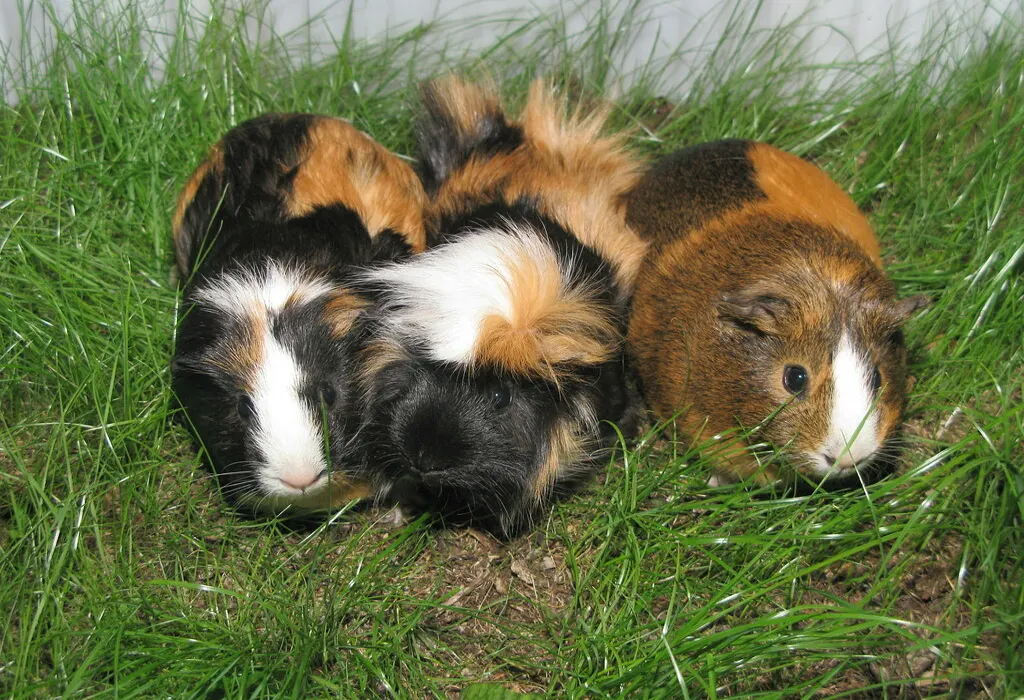Separation anxiety in guinea pigs is a vital topic that must be addressed, as it affects many pet owners of these charming rodents. Just like humans, guinea pigs can exhibit signs of anxiety when separated from their family or habitat.
Anxiety is a normal emotional response, but when it persists, it may dangerously impact the physical and mental well-being of your pet.
Guinea pigs have captured the hearts of many pet owners worldwide. Their unique personalities and intriguing behaviors capture our attention, cementing an emotional bond between owners and their furry friends.
When it comes to their well-being, every aspect of their life needs to be carefully considered, including their emotional health. One of the lesser-discussed topics in the world of guinea pig care is separation anxiety.
Breaking Down Separation Anxiety in Guinea Pigs
Separation anxiety in guinea pigs refers to the sense of distress and emotional turmoil experienced when separated from their cage mates or human companions.
Although guinea pigs don’t express emotions the same way as we do, they are extremely sensitive to changes in their environment. As highly social animals, guinea pigs thrive on companionship, and isolating them can lead to emotional distress and anxiety.
Understanding the Causes
So why do guinea pigs experience separation anxiety?
Here are a few potential reasons:
- Loss of a Cage Mate: Losing a cage mate can be particularly traumatic for guinea pigs, especially if they have shared a strong bond. The death or rehoming of a close companion could trigger separation anxiety in the remaining guinea pig.
- Changes in Environment: Relocating to a new environment or undergoing drastic changes in routine can lead to separation anxiety, as guinea pigs are sensitive to changes in their environment.
- Lack of Adequate Socialization: Social and emotional development during a guinea pig’s early life plays a crucial role in their ability to form healthy relationships with other guinea pigs and humans. Improper socialization during their formative weeks can make them prone to experiencing separation anxiety later in life.
Spotting the Warning Signs of Separation Anxiety
Keep an eye out for the following signs that suggest your guinea pig may be experiencing separation anxiety:
- Vocalizations: An increase in high-pitched, distressed vocalizations is a clear sign that your guinea pig is feeling uneasy or anxious.
- Appetite Changes: Watch for any variations in your guinea pig’s feeding habits, such as loss of appetite, consuming more food than normal, or only eating when you are nearby.
- Altered Sleeping Patterns: Anxious guinea pigs might experience changes in their sleeping habits, such as difficulty falling asleep, excessive sleeping, or restlessness.
- Aggressive or Destructive Behavior: Although rare, guinea pigs may sometimes display aggressive or destructive behaviors in response to anxiety.
- Repetitive or Odd Behaviors: An anxious guinea pig might exhibit repetitive or strange behaviors, such as fur-chewing, excessive self-grooming, or pacing around their cage.
Practical Steps to Calm Separation Anxiety in Guinea Pigs
If you suspect your guinea pig is suffering from separation anxiety, here are some proactive measures to take:
- Introduce a New Companion: Introducing a new guinea pig can help relieve separation anxiety. However, the integration process should be done gradually and with caution. Allow supervised interactions in a neutral space and monitor their behavior.
- Environmental Enrichment: Keep your guinea pig occupied by providing a variety of toys, chews, and hiding spots. Puzzle feeders, tunnels, or even simple cardboard boxes can help create a stimulating environment that will help distract your pet from feelings of anxiety.
- Consistent Human Interaction: Regular contact with humans can go a long way in soothing the emotional distress of a lonely guinea pig. Gently pet, groom, or cuddle your guinea pig to strengthen your bond and provide comfort during times of anxiety.
- Maintain a Predictable Routine: Keeping a consistent and predictable routine will help your guinea pig feel more secure in their environment. Feed, clean, and interact with them at the same time each day to maximize their sense of stability.
- Consult a Veterinarian: If anxiety symptoms persist or worsen, it is crucial to seek the advice of a veterinarian experienced in guinea pig care. They can help determine underlying medical issues or provide guidance on additional measures to improve your pet’s well-being.
Recap: Prioritizing Your Guinea Pig’s Emotional Health
Separation anxiety in guinea pigs is not to be taken lightly. Providing adequate companionship, a stimulating environment, and quality human interaction plays a significant role in ensuring your guinea pig’s emotional well-being.
By recognizing and addressing separation anxiety, you are not only enhancing your guinea pig’s quality of life but also deepening the bond you share with them.
Remember, a happy and healthy pet is the ultimate reward for your devoted care, love, and attention.
